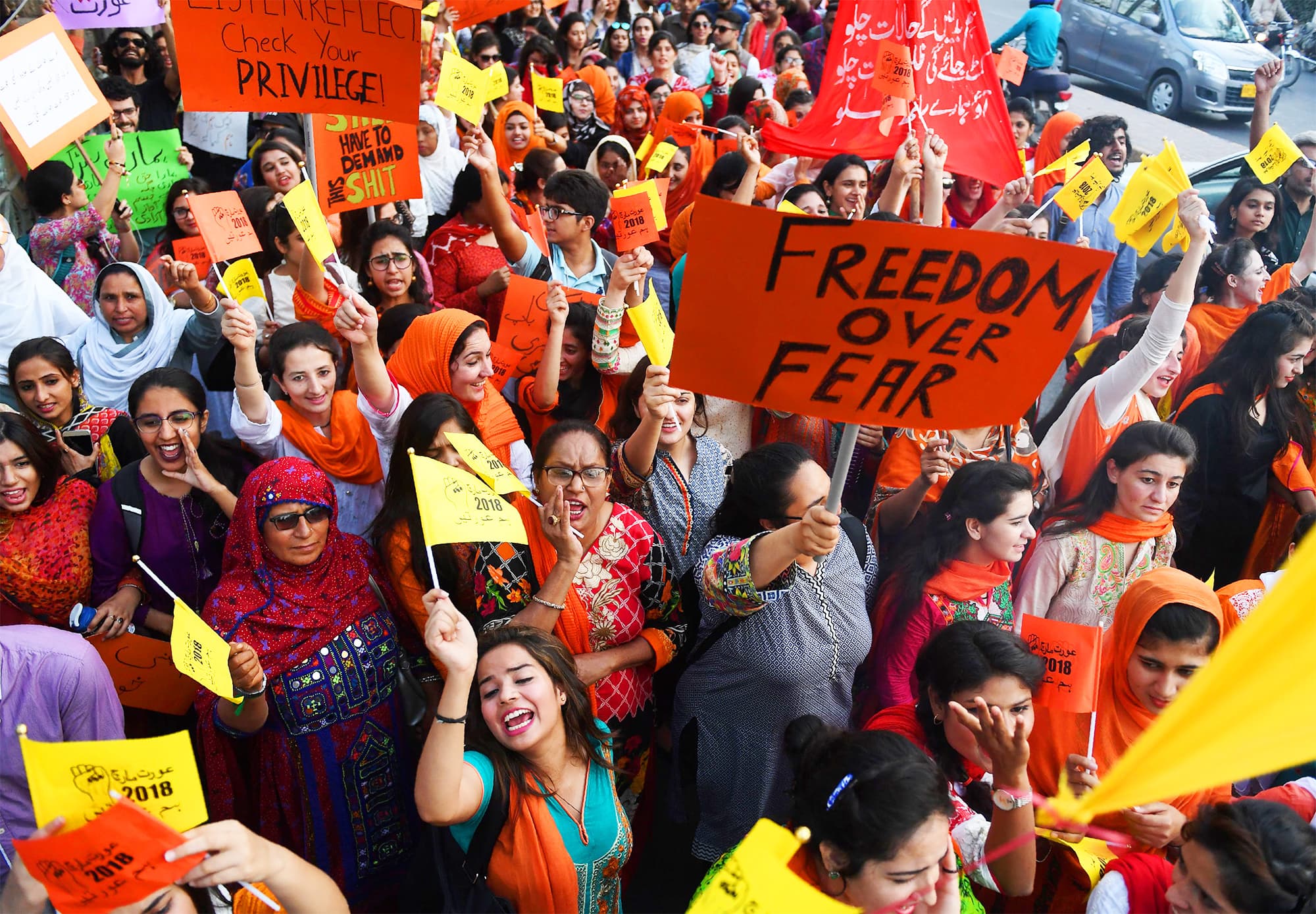It’s 2019, When Will Pakistanis learn to Adopt a Gender-Sensitive Approach?
by Fuzail Zafar
Posted on February 18, 2019
Feminism, FEMPOWER, Gender descrimination, Gender sensitivity
“Just when I thought I was out, they pull me back in.” This line was spoken by Michael Corleone, played by Al Pacino, in 1990 classic The Godfather: Part III. Ironically, at the outset of an article that is meant to capture women’s voices, I am forced to quote from a movie that was itself an embodiment of the deeply misogynistic attitudes of powerful men. However, as ill-luck would have it, no one-liner could have described the current mood in Pakistan vis-à-vis women empowerment. Because just when I thought Pakistan was getting rid of the spectre of patriarchy, at least in a symbolic manner, they pulled me back into the crucible of hopelessness.
The annual wedding season is in full swing, so Samsung thought it would be a great idea to promote dowry by virtue of its latest commercial advertisement. The ad brazenly depicts a newlywed – played by Mahira Khan – joyfully introducing her in-laws to the expensive home appliances she has just brought along as part of her dowry paraphernalia. Her in-laws are acting as if they had hitherto been deprived of some basic middle-class amenities such as refrigerator, air conditioner, washing machine or even a television set, making it looks like a deliberate attempt to convey a thinly veiled message to all the daughters-in-law that the marriage is actually a wedlock between dowry and the family members who are to be benefitted from it, not between their son and you! The ad doesn’t stop here; it goes on to glorify existing gender relationships and roles within the institution of family, thus completing a multi-pronged assault on the gender equality project.

Mahira Khan in Samsung’s advertisement
Time and again, in order to keep our hopes alive, we tried to forget and even erase the ugly memories from our minds that involved brash publicity of hedonistic male aspirations. In late 2017 when PML-N leader Nawaz Sharif, while addressing a public gathering, gave lascivious remarks criticising women who attended PTI’s jalsas, we were furious. But the historic Aurat March in the ensuing months hit the roads of Karachi and gave us immense hope. It portended a transformational shift in the way we – or at least those who drive public opinion – discuss women and their issues.

Aurat March 2018
The change proved to be a fleeting one, as, only a couple of months later, the self-proclaimed righteous brigade were vociferously condemning the “Western Agent” Malala Yousufzai’s homecoming and her “diabolical” role in propagating a negative image of Pakistan abroad. This episode too was forgotten as we celebrated Krishna Kumari’s election victory, signifying a rare triumph for minority women, which remains the most underprivileged stratum of the Pakistani society. Fast forward to the year end, the ghost of patriarchy has reared its head again, this time through a series of ads openly championing obsequious brides and their dowry.

Malala Yousafzai
Add to it the countless incidents of male politicians making fun of female parliamentarians, grown men raping minor girls, bearded folks burning girls’ schools, and hordes of gentlemen reviling #MeToo movement on social media, throughout the outgoing year, we found out that male toxicity continued to perpetuate its grip over the sinews of societies in this part of the world. What is most disturbing is the attitude of the country’s leaders and top-notch celebrities. Nawaz, Mahira, and the politicians represent the upper-most layer of the country’s opinion leaders and if they are not cognisant about the need of bringing a gender-sensitive approach to their conduct and profession, I don’t know who else should be. It would be pertinent to remind you that The Beijing Platform for Action was declared in 1995, the same year Pakistan became a signatory to it. The document called upon the governments, the international community, and civil society, including non-governmental organisations and the private sector, to take strategic action in the twelve critical areas, all concerning gender equality and gender mainstreaming. That was 24 years ago. The mind boggles when we realise it is already 2019 and our policymakers, opinion leaders and advertisers are still unable to incorporate the gender perspective into our public discourse.
Clearly, as long as our textbooks remain devoid of gender-sensitivity while simultaneously glorifying wars and encouraging existing societal patterns that discriminate women against men, our boys will continue to grow into men who would be indifferent to the cause of women empowerment, refusing to move or even budge from their existing positions. They will continue to demand friendly subordinates at work; timorous and ingratiating wives at home; workaholic mothers in the kitchen; and obedient sisters who also have to keep their prurient secrets. The ads they direct being content creators and the statements they give being politicians will continue to feel like resounding slaps on the faces of people who conjure up dreams of a women-friendly Pakistan.


Leave a Reply